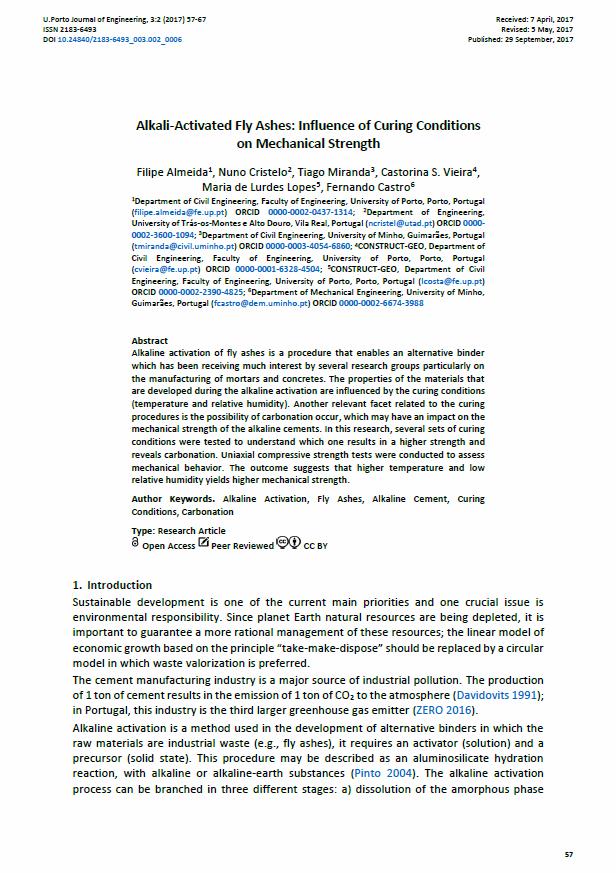Alkali-Activated Fly Ashes: Influence of Curing Conditions on Mechanical Strength
Main Article Content
Abstract
Alkaline activation of fly ashes is a procedure that enables an alternative binder which has been receiving much interest by several research groups particularly on the manufacturing of mortars and concretes. The properties of the materials that are developed during the alkaline activation are influenced by the curing conditions (temperature and relative humidity). Another relevant facet related to the curing procedures is the possibility of carbonation occur, which may have an impact on the mechanical strength of the alkaline cements. In this research, several sets of curing conditions were tested to understand which one results in a higher strength and reveals carbonation. Uniaxial compressive strength tests were conducted to assess mechanical behavior. The outcome suggests that higher temperature and low relative humidity yields higher mechanical strength.
Downloads
Article Details
Authors who publish with this journal agree to the following terms:
- Authors retain copyright and grant the journal right of first publication with the work simultaneously licensed under a Creative Commons Attribution License that allows others to share the work with an acknowledgement of the work's authorship and initial publication in this journal.
- Authors grant the journal the rights to provide the article in all forms and media so the article can be used on the latest technology even after publication and ensure its long-term preservation.
- Authors are able to enter into separate, additional contractual arrangements for the non-exclusive distribution of the journal's published version of the work (e.g., post it to an institutional repository or publish it in a book), with an acknowledgement of its initial publication in this journal.
- Authors are permitted and encouraged to post their work online (e.g., in institutional repositories or on their website) prior to and during the submission process, as it can lead to productive exchanges, as well as earlier and greater citation of published work (See The Effect of Open Access).

